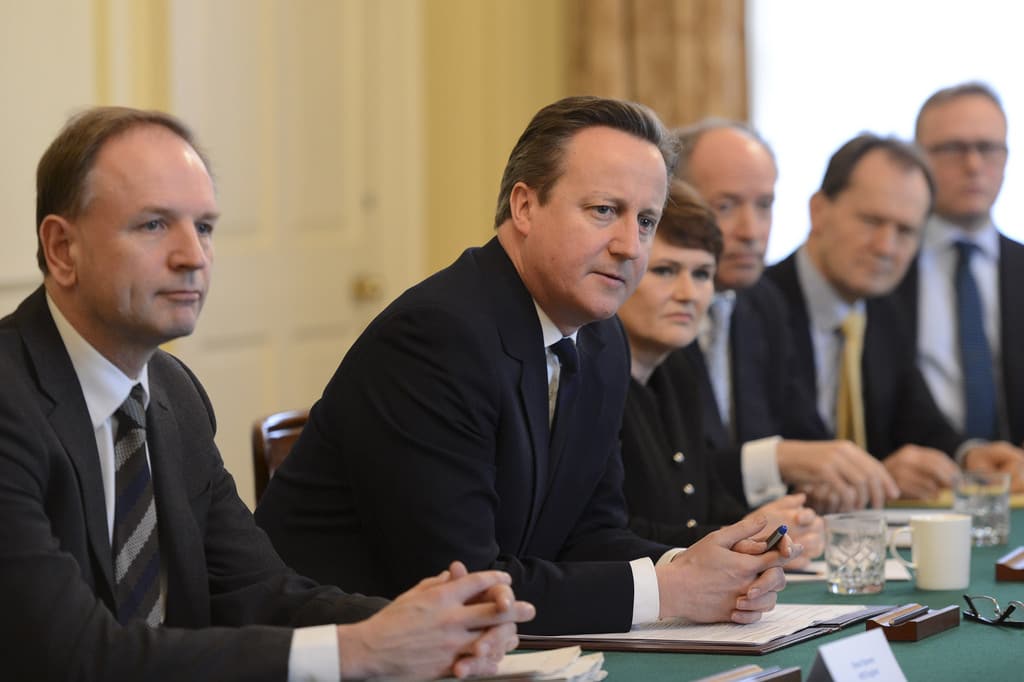More than 30 MPs are calling on the UK government to “urgently reconsider” a new clause that would block researchers who receive government grants from using their results to influence policy.
The motion, tabled by the SNP’s Tommy Sheppard, argues this ‘anti-lobby’ clause leaves the government “vulnerable to accusations of stifling criticism and informed debate about the consequences of its policies.”
Critics of the new clause said it amounted to a “muzzling” of scientists and could impact on key policy areas, including climate change.
Anti-Lobby Clause
The MPs’ concerns are regarding a new clause introduced on 6 February by Matthew Hancock, Conservative Minster for the Cabinet Office, that will be inserted into all new and renewed grant agreements effective 1 May. The clause will “make sure that taxpayer funds are spent on improving people’s lives and good causes, rather than lobbying for new regulation or using taxpayers’ money to lobby for more government funding.”
While these new rules were seen to be mainly directed at charities, the government has confirmed in response to written questions that they are “not specific to charities”, suggesting that universities receiving government grants for research will also be affected.
The clause was directly inspired by research done by the free market think tank, the Institute for Economic Affairs. The clause reads: “The following costs are not Eligible Expenditure: Payments that support activity intended to influence or attempt to influence Parliament, government or political parties, or attempting to influence the awarding or renewal of contracts and grants, or attempting to influence legislative or regulatory action.”
So for instance, if an academic’s government-funded research showed that new regulations were causing harm to people or the environment, under this new clause they would not be able to call for a policy change to bring about improvements.
The clause essentially serves to limit the role of academic research in helping develop robust policy that works in the public’s interest. The new rules also threaten to limit the scope of research projects for fear that they produce critical conclusions that may be seen to go against grant agreements.
The Early Day Motion was tabled with support from Green MP Caroline Lucas, SNP MPs Patrick Grady, Drew Hendry, Jonathan Edwards, and Social Democratic and Labour Party MP Alasdair McDonnell, along with signatures from more than 25 other MPs, including Alex Salmond, Scotland’s former First Minister.
Stifling Science
“I am very worried about this and so are many of my colleagues,” Professor James Wilsdon, chair of the Campaign for Social Science told the Guardian last month. “This has sweeping implications for the way we do research in this country and the way we try to make it relevant to the nation. This is an attempt to muzzle scientists and social scientists.”
Bob Ward, policy and communications director at the Grantham Research Institute on Climate Change and the Environment at the London School of Economics, said the clause could also result in detrimental effects on climate research.
He told the Guardian: “These sudden and drastic restrictions on research grants will have an immensely damaging impact on key areas of public policy, such as fighting climate change. They will make it much more difficult for independent university experts to advise ministers and civil servants, and hence make it easier for lobbyists, companies and campaign groups to divert policies towards their vested interests instead. This will be bad for policymaking, bad for democracy and bad for the public interest.”
A petition launched by Ward has collected more than 2,000 signatures and asks the government to exempt grants for academic research from the new ‘anti-lobbying’ regulation.
Parliamentary Debate
However, the question of exactly how this clause could be interpreted and whether the “muzzling” of scientists was the government’s intention remains unanswered.
As UCL Professor Peter Scott has written, this clause “may have a chilling effect on the independence of publicly funded research” but “whether this is ministers’ intention is an open question.”
In an attempt to clear things up, Hancock wrote on 1 March that “the clause does not prevent grant recipients from meeting with ministers, responding to public consultations, or giving evidence to select committees.”
But you would be forgiven for being confused as there is still a contradiction between Hancock’s 1 March statement and the new clause: How does meeting with ministers or giving evidence to select committees – particularly if this is to present findings of government grant-funded research that might influence policy making – not constitute an attempt to influence parliament, legislation or regulation (aka not be seen as ‘lobbying’) as described under the new clause?
The MPs who have tabled the Early Day Motion hope to prompt a parliamentary debate on the implications of the new clause – something which didn’t happen when it was originally introduced.
It isn’t the first time either there has been a request for parliamentary debate on the clause. On 10 February Baroness Hayter of Kentish Town submitted a written question to the Cabinet Office asking whether the government will suspend the new policy “so as to allow time for parliamentary debate on this issue.”
The Cabinet Office failed to provide an answer.
Photo: Number 10 via Flickr
Subscribe to our newsletter
Stay up to date with DeSmog news and alerts






